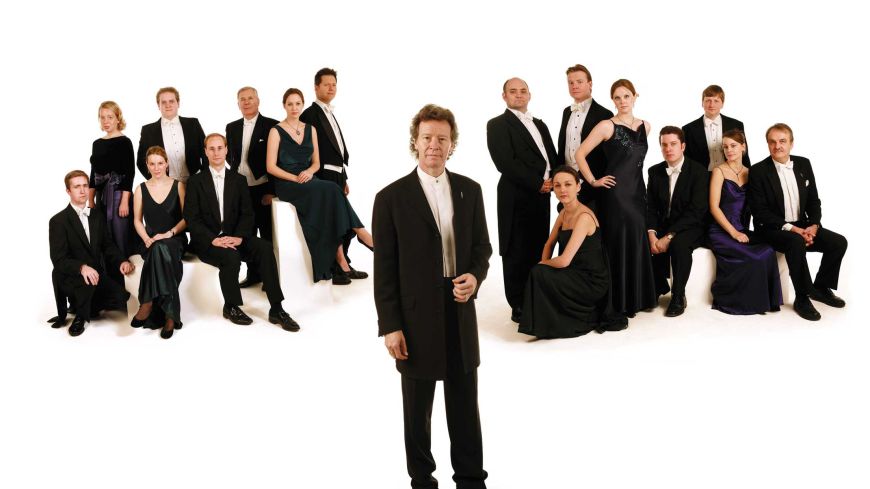
This is the sixth successive year that The Sixteen has appeared at the Edinburgh International Festival. It's hard to find sufficient expression of their undoubted mastery of music sung both in Latin and, in the case of Poulenc, in French. We heard their 36 singers for Poulenc's masterpiece of unaccompanied vocal writing, Figure humaine, and before that just 12 men singing Sheppard's ‘In manus tuas’.
Although Josquin des Prez died in 1521 some twenty or so years after the advent of music printing, work was being ascribed to him long after his death such was his fame. One composer who discovered his work ascribed instead to Josquin found the motet removed from the repertoire of the papal choir once they learned the truth. Josquin wrote two Mass settings on the L'homme armé melody. The Sixteen sung the Kyrie from the first and the Agnes Dei from the second.
John Sheppard who died in the early days of the reign of Elizabeth 1 wrote both his In manus tuas (Into thy hands, O Lord, I commend) and Libera now, salva now (Free us, save us, defend us) in Marian times for the chapel at Magdalene College, Oxford and for its service of Compline. There is no Compline in the Book of Common Prayer but it appears in the 1929 Scottish Episcopal Prayer Book.
Francis Poulenc took eight of the twenty nine poems by Paul Eluard that he had set in the dim dark days of the German invasion of France in World War II to create Figure humane. The Sixteen sung four at a time with the final hefty movement Liberté, a setting of the most famous poem of the French Resistance.
John Taverner was the first choirmaster for what was to become Christ Church, Oxford. His Mass 'O'Michael' was composed for the feast of St Michael and All Angels. In Herefordshire, for instance, many ancient churches are dedicated to St Michael, an important saint. The Sixteen sung its lovely Sanctus.
A very special evening. All praise to Harry Christophers and his choir.
Concert: Monday 11th August 2014 at 8pm

